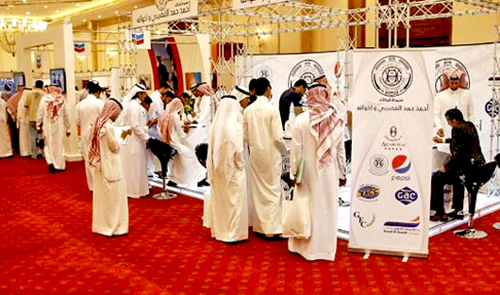Jeddah, Feb 9: The Labor Ministry has softened its Saudization drive in favor of businesses by canceling a previous decision that demanded 13 weeks for confirmation of a Saudi’s appointment as a full employee under Nitaqat.

Under the new decision, a Saudi would be calculated in the Nitaqat system soon after his registration with the General Organization for Social Insurance, provided the company must have paid the worker’s premium.
“The new system is applicable to all Nitaqat categories as well as small firms having nine workers or less,” a Labor Ministry statement said, adding that the new decision would be applicable from Feb. 22. It cancels all the previous decisions that contradict with it, the ministry said.
The cancellation came in a response to a request made by the Council of Saudi Chambers to protect the interests of private companies.
The ministry had implemented the mechanism about six months ago to ensure that private companies follow the Saudization regulations and prevent false nationalization of jobs.
The ministry was calculating the number of Saudis at a company over successive periods of 13 weeks. The move was aimed at tracking whether employers are holding on to their Saudi employees, said Hattab Al-Anazi, spokesman of the Ministry of Labor.
In the first month, the Saudization percentage is calculated by counting the new Saudi employee as a one-third employee, in the second month the employee is calculated as a two-thirds employee. In the third month, each new Saudi is counted as a full employee.
Under Nitaqat, there are varying Saudization percentages for various industries. For example, the quota at banks employing 500 people or more is a minimum of 49 percent.
For the media sector, it is 19 percent. Commercial establishments, insurance companies and public schools also have to stick to the 19 percent minimum.
For some business activities, such as lingerie shops, 100 percent Saudization is required, specifically aimed at providing employment to Saudi women.
Official figures put the level of unemployment at 10 percent, but among women employment rate could be as high as 30 percent.





Comments
Add new comment